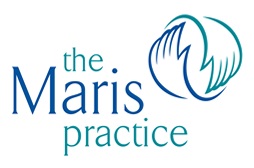Introduction
Menopause, a natural phase of a woman’s life, is often met with mixed emotions. For some, it represents a new beginning, while for others, it can be a challenging transition. With the rise of birth control pills and concerns about environmental factors like oestrogen in the water supply, the experience of menopause has evolved over generations. In this blog, we will explore the changes in menopause, discuss what can help ease the journey, and delve into natural remedies, empowerment, and reframing the outlook for a smoother transition.
The Changing Landscape of Menopause
In the past, menopause was largely seen as a silent topic, rarely discussed openly. Thankfully this has changed over the last few years. However, it appears, so also has the severity of menopausal symptoms. The advent of birth control pills and hormone replacement therapy (HRT) has brought significant changes. While these medications have undoubtedly provided relief from menopausal symptoms, they have also led to new discussions and research on women’s health, hormones, and the long-term consequences of such interventions.
One of the concerns surrounding menopause and women’s health is the presence of synthetic oestrogen. This oestrogen often comes from sources like birth control pills, hormone therapies, and industrial chemicals and then into our water supply. Research suggests that continuous exposure to such substances may affect women’s health, potentially influencing the onset and severity of menopausal symptoms.
Natural Remedies for Menopause
Natural remedies are becoming increasingly popular in managing menopausal symptoms. While they may not work for everyone, they offer a holistic and often safer approach to symptom relief. Some natural remedies include:
- Herbal Supplements: Herbs like black cohosh, red clover, and evening primrose oil are believed to help with hot flashes and mood swings.
- Dietary Changes: A diet rich in fruits, vegetables, whole grains, and lean protein can alleviate symptoms. Reducing caffeine and alcohol intake can also help.
- Liver/Adrenal Support Supporting the liver and adrenals to produce hormones and detox efficiently.
- Exercise: Regular physical activity can improve mood, reduce stress, and maintain bone density.
- Mind-Body Practices: Techniques such as yoga, meditation, and acupuncture can help manage stress and promote emotional well-being.
- Bioidentical Hormones: For those looking for hormone therapy, bioidentical hormones, derived from natural sources, are an option to consider.
Empowerment and Transition
Empowerment during menopause should be a key aspect in helping to create a positive experience. Women must feel in control of their bodies and their health. Empowerment can come through education, open communication with healthcare providers, and support from friends and family.
But it can also come from embracing the changes in attitude we start experiencing. Accepting that it is OK and liberating to suddenly not give a hoot what people think (wanted a stronger word than ‘hoot’ in there!). Your life experience, a reduction in those hormones that had us nurturing and protecting and innate female wisdom mean we are much more likely to call it, say it as it is and even bring about change.
Embrace it – the world needs your female wisdom, power and insight.
Reframing the Outlook
Changing the outlook on menopause is crucial for a smoother transition. Instead of viewing it as an endpoint, consider it a new beginning. Menopause can bring freedom from menstruation, reduced risks of certain health issues, and a chance to focus on self-care.
Celebrate the wisdom and experience that come with age, and lean in to the opportunities it brings.
Conclusion
Menopause has evolved over the years due to changes in contraceptive methods and environmental factors. While these changes may have impacted the experience, they have also brought about greater awareness of women’s health. Natural remedies, empowerment, and a good support can all contribute to a more manageable transition through menopause.
Hopefully we can make it a time for self-discovery, growth, and celebration of the unique journey that each woman undertakes during this significant life phase.
How can The Maris Practice practitioners help?
We have a group of practitioners who can look holistically at your symptoms and needs. We offer Nutritional Therapy (many research projects have shown how food can alleviate many problematic symptoms and support the hormonal systems), Osteopathy (for aches and pains), plus Acupuncture, Yoga Therapy and Hypnotherapy which offer possibilities for reducing symptoms and hormone balancing.
